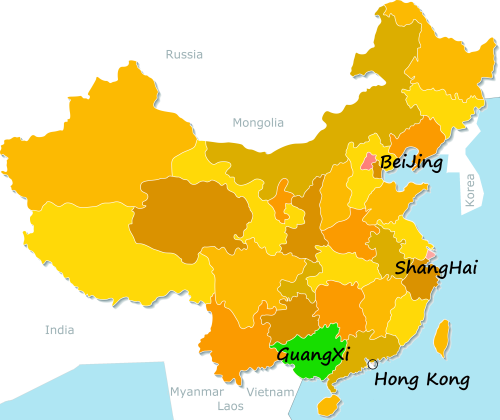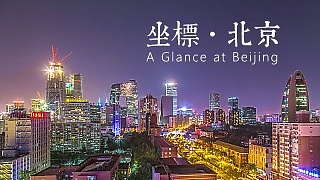
|
ChengDu: 20 Kid-Friendly Places to Visit
Panda Base (成都大熊猫繁育研究基地 Chéngdū Dàxióngmāo Fányù Yánjiū Jīdì): Giant panda breeding and research center with exhibits and educational programs.
Chengdu Research Base of Giant Panda Breeding (成都大熊猫繁育研究基地 Chéngdū Dàxióngmāo Fányù Yánjiū Jīdì): Panda reserve with habitats, breeding facilities, and conservation efforts.
Chengdu Happy Valley (成都欢乐谷 Chéngdū Huānlègǔ): Amusement park with rides, attractions, and entertainment for all ages.
Chengdu Zoo (成都动物园 Chéngdū Dòngwùyuán): Zoo with diverse animal exhibits, shows, and educational programs.
Sichuan Science and Technology Museum (四川科技馆 Sìchuān Kējìguǎn): Interactive science museum with exhibits, experiments, and demonstrations.
Chengdu Eastern Suburb Memory (成都东郊记忆 Chéngdū Dōngjiāo Jìyì): Cultural theme park with traditional architecture, performances, and activities.
Chengdu Culture Park (成都文化公园 Chéngdū Wénhuà Gōngyuán): Park with historic sites, gardens, and cultural exhibitions.
Chengdu Haichang Polar Ocean World (成都海昌极地海洋世界 Chéngdū Hǎichāng Jídì Hǎiyáng Shìjiè): Polar ocean park with marine life exhibits, shows, and activities.
Happy Valley Water Park (欢乐谷水上乐园 Huānlègǔ Shuǐshàng Lèyuán): Water park with slides, pools, and water attractions for families.
Chengdu Botanical Garden (成都植物园 Chéngdū Zhíwùyuán): Botanical garden with plant collections, greenhouses, and scenic landscapes.
Chengdu Teddy Bear Museum (成都泰迪熊博物馆 Chéngdū Tàidíxióng Bówùguǎn): Museum with teddy bear exhibits, collections, and interactive displays.
Chengdu Anren Ancient Town (成都安仁古镇 Chéngdū Ānrén Gǔzhèn): Historic town with preserved architecture, museums, and cultural heritage.
Chengdu Shunxing Old Teahouse (成都顺兴老茶馆 Chéngdū Shùnxìng Lǎo Cháguǎn): Traditional teahouse with Sichuan opera performances, tea ceremonies, and snacks.
Chengdu Anren Ancient Town (成都安仁古镇 Chéngdū Ānrén Gǔzhèn): Historic town with preserved architecture, museums, and cultural heritage.
Chengdu Happy Valley (成都欢乐谷 Chéngdū Huānlègǔ): Amusement park with rides, attractions, and entertainment for all ages.
Chengdu Zoo (成都动物园 Chéngdū Dòngwùyuán): Zoo with diverse animal exhibits, shows, and educational programs.
Chengdu Culture Park (成都文化公园 Chéngdū Wénhuà Gōngyuán): Park with historic sites, gardens, and cultural exhibitions.
Chengdu Eastern Suburb Memory (成都东郊记忆 Chéngdū Dōngjiāo Jìyì): Cultural theme park with traditional architecture, performances, and activities.
Chengdu Happy Valley (成都欢乐谷 Chéngdū Huānlègǔ): Amusement park with rides, attractions, and entertainment for all ages.
Chengdu Teddy Bear Museum (成都泰迪熊博物馆 Chéngdū Tàidíxióng Bówùguǎn): Museum with teddy bear exhibits, collections, and interactive displays.
ChengDu: 30 More Places to Visit
Chengdu Wuhou Shrine (成都武侯祠 Chéngdū Wǔhóu Cí): Temple and museum dedicated to Zhuge Liang, a famous military strategist.
Wenshu Monastery (成都文殊院 Chéngdū Wénshū Yuàn): Buddhist monastery with historic buildings, gardens, and tea houses.
Chengdu Jinsha Site Museum (成都金沙遗址博物馆 Chéngdū Jīnshā Yízhǐ Bówùguǎn): Museum with exhibits on the Jinsha archaeological site and ancient artifacts.
Chengdu Wide and Narrow Alley (宽窄巷子 Kuānzhǎi Xiàngzi): Historic area with traditional architecture, shops, and street food.
Chengdu Du Fu Thatched Cottage (成都杜甫草堂 Chéngdū Dù Fǔ Cǎotáng): Museum and park dedicated to the Tang dynasty poet Du Fu.
Chengdu Tianfu Square (成都天府广场 Chéngdū Tiānfǔ Guǎngchǎng): Central square with landmarks, sculptures, and cultural events.
Chengdu Sichuan Opera Museum (成都川剧博物馆 Chéngdū Chuānjù Bówùguǎn): Museum with exhibits on Sichuan opera costumes, masks, and performances.
Chengdu Huanhuaxi Park (成都浣花溪公园 Chéngdū Huànhuāxī Gōngyuán): Park with rivers, bridges, and scenic landscapes for leisure and relaxation.
Chengdu Jinli Ancient Street (成都锦里古街 Chéngdū Jǐnlǐ Gǔjiē): Historic street with traditional architecture, shops, and street vendors.
Chengdu Happy Valley (成都欢乐谷 Chéngdū Huānlègǔ): Amusement park with rides, attractions, and entertainment for all ages.
Chengdu Zoo (成都动物园 Chéngdū Dòngwùyuán): Zoo with diverse animal exhibits, shows, and educational programs.
Chengdu Culture Park (成都文化公园 Chéngdū Wénhuà Gōngyuán): Park with historic sites, gardens, and cultural exhibitions.
Chengdu Eastern Suburb Memory (成都东郊记忆 Chéngdū Dōngjiāo Jìyì): Cultural theme park with traditional architecture, performances, and activities.
Chengdu Happy Valley (成都欢乐谷 Chéngdū Huānlègǔ): Amusement park with rides, attractions, and entertainment for all ages.
Chengdu Teddy Bear Museum (成都泰迪熊博物馆 Chéngdū Tàidíxióng Bówùguǎn): Museum with teddy bear exhibits, collections, and interactive displays.
Chengdu Anren Ancient Town (成都安仁古镇 Chéngdū Ānrén Gǔzhèn): Historic town with preserved architecture, museums, and cultural heritage.
Chengdu Shunxing Old Teahouse (成都顺兴老茶馆 Chéngdū Shùnxìng Lǎo Cháguǎn): Traditional teahouse with Sichuan opera performances, tea ceremonies, and snacks.
Chengdu Anren Ancient Town (成都安仁古镇 Chéngdū Ānrén Gǔzhèn): Historic town with preserved architecture, museums, and cultural heritage.
Chengdu Happy Valley (成都欢乐谷 Chéngdū Huānlègǔ): Amusement park with rides, attractions, and entertainment for all ages.
Chengdu Teddy Bear Museum (成都泰迪熊博物馆 Chéngdū Tàidíxióng Bówùguǎn): Museum with teddy bear exhibits, collections, and interactive displays.
|

 A visit to the LongJi (Dragon’s Backbone) rice terraces 龙脊梯田
A visit to the LongJi (Dragon’s Backbone) rice terraces 龙脊梯田





